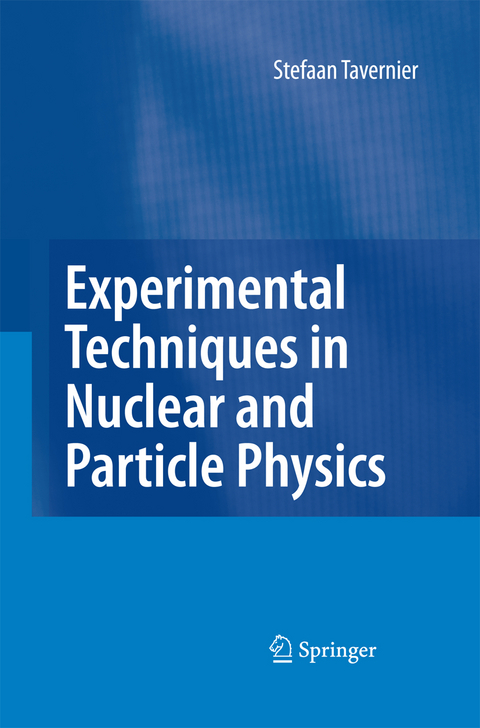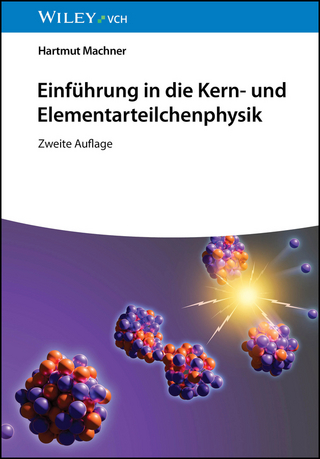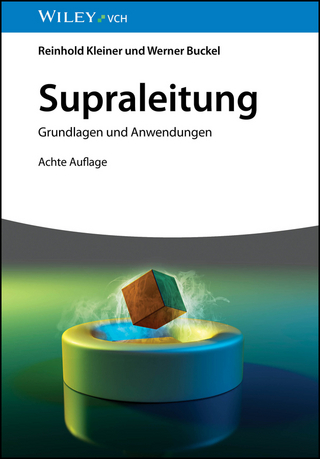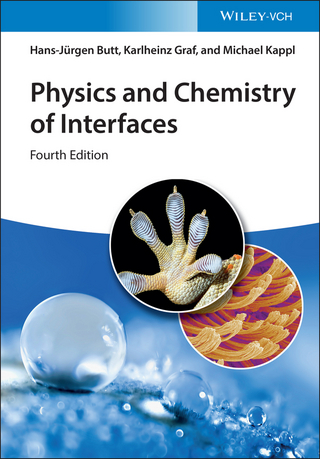
Experimental Techniques in Nuclear and Particle Physics
Seiten
2014
|
2010
Springer Berlin (Verlag)
978-3-642-42602-5 (ISBN)
Springer Berlin (Verlag)
978-3-642-42602-5 (ISBN)
Based on a course taught for years to students in both nuclear and biomedical engineering, this book first introduces the structure of matter at the subatomic scale before it covers the experimental aspects of nuclear and particle physics.
I have been teaching courses on experimental techniques in nuclear and particle physics to master students in physics and in engineering for many years. This book grew out of the lecture notes I made for these students. The physics and engineering students have rather different expectations of what such a course should be like. I hope that I have nevertheless managed to write a book that can satisfy the needs of these different target audiences. The lectures themselves, of course, need to be adapted to the needs of each group of students. An engineering student will not qu- tion a statement like "the velocity of the electrons in atoms is ?1% of the velocity of light", a physics student will. Regarding units, I have written factors h and c explicitly in all equations throughout the book. For physics students it would be preferable to use the convention that is common in physics and omit these constants in the equations, but that would probably be confusing for the engineering students.Physics students tend to be more interested in theoretical physics courses. However, physics is an experimental science and physics students should und- stand how experiments work, and be able to make experiments work.
I have been teaching courses on experimental techniques in nuclear and particle physics to master students in physics and in engineering for many years. This book grew out of the lecture notes I made for these students. The physics and engineering students have rather different expectations of what such a course should be like. I hope that I have nevertheless managed to write a book that can satisfy the needs of these different target audiences. The lectures themselves, of course, need to be adapted to the needs of each group of students. An engineering student will not qu- tion a statement like "the velocity of the electrons in atoms is ?1% of the velocity of light", a physics student will. Regarding units, I have written factors h and c explicitly in all equations throughout the book. For physics students it would be preferable to use the convention that is common in physics and omit these constants in the equations, but that would probably be confusing for the engineering students.Physics students tend to be more interested in theoretical physics courses. However, physics is an experimental science and physics students should und- stand how experiments work, and be able to make experiments work.
This is an open access book.
Interactions of Particles in Matter.- Natural and Man-Made Sources of Radiation.- Detectors Based on Ionisation in Gases.- Detectors Based on Ionisation in Semiconductor Materials.- Detectors Based on Scintillation.- Neutron Detection.- Electronics for Particle Detectors.
| Erscheint lt. Verlag | 23.11.2014 |
|---|---|
| Zusatzinfo | X, 306 p. |
| Verlagsort | Berlin |
| Sprache | englisch |
| Maße | 155 x 235 mm |
| Gewicht | 486 g |
| Themenwelt | Naturwissenschaften ► Physik / Astronomie ► Atom- / Kern- / Molekularphysik |
| Technik ► Elektrotechnik / Energietechnik | |
| Schlagworte | detector gas ionization • electronics nuclear detector • meassurement technique nuclear • Neutron • open access • particle acceleration • Particle accelerator • Particle physics • principle particle accelerator • radiation matter • subatomic poarticles • textbook detector • textbook nuclear experiments • textbook nuclear physics • textbook particle acceleration • Textbook particle physics |
| ISBN-10 | 3-642-42602-6 / 3642426026 |
| ISBN-13 | 978-3-642-42602-5 / 9783642426025 |
| Zustand | Neuware |
| Haben Sie eine Frage zum Produkt? |
Mehr entdecken
aus dem Bereich
aus dem Bereich
Buch | Softcover (2024)
Wiley-VCH (Verlag)
59,90 €


